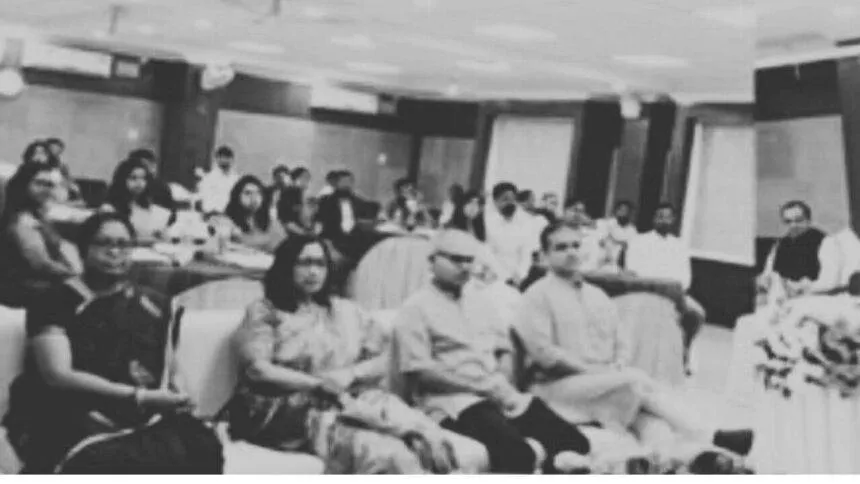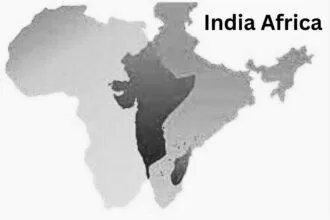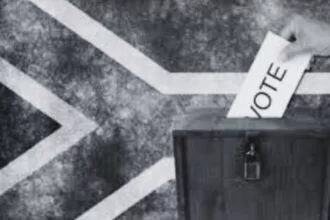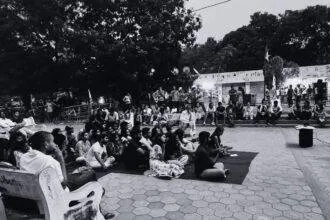On April 21, 1947, Sardar Vallabhbhai Patel, the first Home Minister of Independent India, addressed the first batch of Administrative Services. Every year the day is celebrated as the Civil Services Day by the Government of India to recognize and reward the civil servants. On this day, civil servants are expected to introspect and rededicate themselves to public service.
In his address, Sardar Patel laid out the principles of good governance for the civil servants. He had said, “A civil servant cannot afford to, and must not, take part in politics”. It seems several civil servants did not take his advice seriously. The quest for more power and the excitement of interacting with the masses motivated several civil servants to join politics. Some join with the genuine intention of service, while several others join with the pretention of serving people at the bottom of the pyramid. Some leverage their administrative skills and improve politics, and some become true politicians.
History is replete with cases of civil servants becoming active politicians. How can we forget Ajit Jogi who left his IAS job to join the Congress Party and eventually became the first Chief Minister of the newly formed state of Chhattisgarh? The CM of Delhi was also a seasoned civil servant before becoming a politician. Another high-profile civil servant turned politician is the present external affairs minister. The cooling-off period that bureaucrats must serve before they can join the private sector was waived off, which enabled him to join Tata Sons. After a short stint in the corporate world, he won the Rajya Sabha election from Gujarat with the support of the party in power. He was also awarded a Padma Shri in 2019. He became the first foreign secretary to become the external affairs minister. The people of Odisha also continue to witness such transitions. The railway minister of the country, the incumbent Member of Parliament from Bhubaneswar, and the sitting Rajya Sabha member representing the party in power were civil servants before becoming active politicians. Civil service provides opportunities to create bridges with the political party in power which often enables the civil servants to transit from service to politics. While many ignore them, some use those bridges to start a more gainful journey.
In a parliamentary democracy, the civil servants are in power till they retire, whereas the politicians must face elections every five years to stay in power. Despite the privilege of a permanent job, we continue to witness several civil servants taking voluntary retirement to join politics. It is worth researching whether the transition from civil service to active politics is a strategy to maximize the financial return or social return.
That brings us to a larger question. Why discrimination against civil servants? Why can’t a civil servant enter politics? The Constitution provides the right to every citizen to enter politics. So where is the problem? The issue is not about joining politics, but it is the timing of the entry to politics. It is quite disturbing to see an officer leaving the job and immediately joining a party. How about having a cooling period for such shifts? How about practicing self-regulation as suggested by the former Chief Election Commissioner Gopalaswami? He said, “There isn’t a written rule debarring retired civil servants from entering politics. Nonetheless, it is avoidable and must be given thought to by the civil servants”.
In the pursuit to stay in power, civil servants join politics or get into statutory bodies/commissions as a member or the chairperson of the same or become the advisor to the chief ministers. The RBI, NSE, IBBI, IRDA, and CERC are some statutory bodies which have a retired civil servant as the head. Odisha too has many such examples. The Electricity Regulatory Commission, the Election Commission, the Information Commission, and the Western Odisha Development Council are some organisations which are headed by retired civil servants. No one can question the commitment, experience, and knowledge of these officers, but the process followed to get into the coveted position is questionable. Hope the Government will initiate steps to apply at least one T (transparency) in the selection process of the heads of these statutory bodies.
Now let us see the second piece of advice Sardar Patel gave to the civil servants in his famous speech. He had said, “It will be your duty to treat the common men in India as your own or, to put it correctly, to feel yourself to be one of them and amongst them.”The theme for the current year’s Civil Services Day:Empowering Citizens and Reaching the Last Mile,is an apt reflection of the spirit of Sardar Patel’s speech.
But the ground reality is far different from the desired goals. Today’s officers seem to be drifting away from civilians. I still remember my school days in the early 1970s when my father used to work as the private secretary (non-IAS) to several secretaries of the Government of Orissa. On several occasions, the officers (IAS) used to walk into our house to have a conversation with my father over a cup of coffee. Several officers used to attend parent-teacher meetings of our school and participate in social activities too. Today the situation has changed. We don’t see them in our alumni meetings, and find it difficult to meet them without a formal appointment. Hope some senior civil servants will start building bridges with the commoners and make sincere efforts to walk the last mile.
As a closing note, it is worth remembering the famous statement of our former chief minister Biju Babu, “In my dream of the 21st century for the State; I would have young men and women who put the interest of the State before them. They will have pride in themselves, confidence in themselves”. Let the dream of Biju Babu continue to guide the present and future civil servants of the country.
Comments
0 comments






